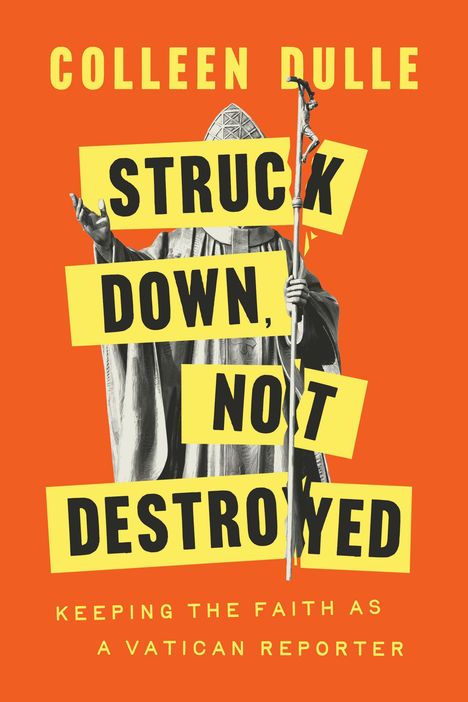Colleen Dulle: Struck Down, Not Destroyed, Gebunden
Struck Down, Not Destroyed
- Keeping the Faith as a Vatican Reporter
(soweit verfügbar beim Lieferanten)
- Verlag:
- Prh Christian Publishing, 08/2025
- Einband:
- Gebunden
- Sprache:
- Englisch
- ISBN-13:
- 9780593728420
- Artikelnummer:
- 12104061
- Umfang:
- 176 Seiten
- Gewicht:
- 313 g
- Maße:
- 210 x 140 mm
- Stärke:
- 11 mm
- Erscheinungstermin:
- 12.8.2025
- Hinweis
-
Achtung: Artikel ist nicht in deutscher Sprache!
Klappentext
A bold, inspiring call not to lose spiritual hope from a Vatican reporter who has seen the Catholic Church's darkness---and has learned that it cannot overpower the light
"A compelling, fortifying read for anyone who is grappling with the fallen side of the church."---Abigail Favale, author of The Genesis of Gender
For too many Catholics, the darkness of creeping doubt, of drifting out into the spiritual cold of God's absence, is felt not outside the church but within it. With each of the church's moral failures---the sexual abuse, systematic mistreatment of women, shady financial management, its cozy relationships with corrupt political power---people lose faith or they wonder if they can, in good conscience, remain part of the church at all. For Catholic journalists who report on the church's failures in detail, the struggle to keep the faith can feel like an intolerable cognitive dissonance.
In Struck Down, Not Destroyed, Vatican reporter for America magazine Colleen Dulle takes readers for the first time into her own experience of reporting: how the church has put her own faith into crisis, and how she has managed to stay Catholic by meeting again and again the spiritual reality at the heart of the church---God and the saints. With each chapter, Dulle revisits her reporting on a church crisis, revealing to readers that in every instance of anger, betrayal, and hurt, she was ultimately renewed in hope, courage, and resolve.
Recounting efforts to pray honestly and finding herself yelling at God, attending Mass at churches where she was treated like the "wrong" kind of Catholic, or learning that one of her spiritual heroes was a sexual abuser, Dulle offers readers the gift of solidarity: they are not alone and there is hope. At the times when the church seemed merely human, just an institution for power and politicking, Dulle found herself spiritually upheld by difficult prayer, other faithful Catholics, fellow reporters, faithful priests, and, ultimately, the Holy Spirit. Dulle holds out this same promise for readers. She provides no easy solutions, nor does she pretend to resolve the feelings of dissonance; instead, she passes on the courage she received with a vivid reminder that the church's faith is still worth believing in and fighting for.


